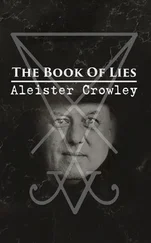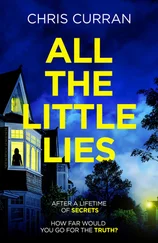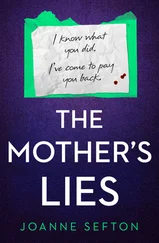We have to do certain chores for Grandmother, otherwise she doesn't give us anything to eat and leaves us to spend the night outdoors.
At first we refuse to obey her. We sleep in the garden, we eat fruit and raw vegetables.
In the morning, before daybreak, we see Grandmother leave the house. She says nothing to us. She goes and feeds the animals, milks the goats, then takes them to the bank of the stream, where she ties them to a tree. Then she waters the garden and picks the vegetables and fruit, which she loads into her wheelbarrow. She also puts in a basket full of eggs, a small cage with a rabbit, and a chicken or duck with its legs tied together.
She goes off to market pushing her wheelbarrow, with the strap around her scrawny neck, which forces her head down. She staggers under the weight. The bumps and stones in the road make her lose her balance, but she goes on walking, her feet turned inwards, like a duck. She walks to the town, to the market, without stopping, without putting her wheelbarrow down once.
When she gets back from the market, she makes a soup with the vegetables she hasn't sold, and jams with the fruit. She eats, she goes and has a nap in her vineyard, she sleeps for an hour, then she works in the vineyard, or if there is nothing to do there, she returns to the house, she cuts wood, she feeds the animals again, she brings back the goats, she milks them, she goes out into the forest, comes back with mushrooms and kindling, she makes cheeses, she dries mushrooms and beans, she bottles other vegetables, waters the garden again, puts things away in the cellar, and so on until nightfall.
On the sixth morning, when she leaves the house, we have already watered the garden. We take heavy buckets full of pigfeed from her, we take the goats to the bank of the stream, we help her load the wheelbarrow. When she comes back from the market, we are cutting wood.
At the meal, Grandmother says:
"Now you understand. You have to earn food and shelter."
We say:
"It's not that. The work is hard, but to watch someone working and not do anything is even harder, especially if it's someone old."
Grandmother sniggers:
"Sons of a bitch! You mean you felt sorry for me?"
"No, Grandmother. We just felt ashamed."
In the afternoon, we go and gather wood in the forest.
From now on we do all the chores we can.
The Forest and the Stream
The forest is very big, the stream is very small. To get to the forest, we have to cross the stream. When there isn't much water, we can cross it by jumping from one stone to another. But sometimes, when it has rained a lot, the water comes up to our waists, and this water is cold and muddy. We decide to build a bridge with bricks and planks that we find around bombed houses.
Our bridge is strong. We show it to Grandmother. She tries it and says:
"Very good. But don't go too far into the forest. The frontier is nearby, the soldiers will shoot at you. And above all, don't get lost. I won't come looking for you."
When we were building the bridge, we saw fish. They hide under big stones or in the shadow of bushes and trees whose branches meet in places over the stream. We choose the biggest fish, we catch them, and we put them in a sprinkling can filled with water. In the evening, when we take them back to the house, Grandmother says:
"Sons of a bitch! How did you catch them?"
"With our hands. It's easy. You just have to stay still and wait."
"Then catch a lot. As many as you can."
Next day, Grandmother puts the sprinkling can on her wheelbarrow and sells our fish at market.
We often go into the forest, we never get lost, we know where the frontier is. Soon the guards get to know us. They never shoot at us. Grandmother teaches us to tell the difference between edible mushrooms and poisonous ones.
From the forest we bring firewood on our backs, and mushrooms and chestnuts in baskets. We stack the wood neatly against the walls of the house under the porch roof, and we roast chestnuts on the stove if Grandmother isn't there.
Once, deep in the forest, beside a big hole made by a bomb, we find a dead soldier. He is still in one piece, only his eyes missing because of the crows. We take his rifle, his cartridges, and his grenades: we hide the rifle inside a bundle of firewood, the cartridges and grenades in our baskets, under the mushrooms.
When we get back to Grandmother's, we carefully wrap these objects in straw and potato sacks, and bury them under the bench in front of the officer's window.
At home, in the Big Town, Mother used to wash us often. In the shower or in the bath. She put clean clothes on us and cut our nails. She went with us to the barber to have our hair cut. We used to brush our teeth after every meal.
At Grandmother's it is impossible to wash. There's no bathroom, there isn't even any running water. We have to go pump water from the well in the yard and carry it back in a bucket. There's no soap in the house, no toothpaste, no washing powder.
Everything in the kitchen is dirty. The red, irregular tiles stick to our feet, the big table sticks to our hands and elbows. The stove is completely black with grease, and the walls all around are black with soot. Although Grandmother washes the dishes, the plates, spoons, and knives are never quite clean and the saucepans are covered with a thick layer of grime. The dishcloths are grayish and have a nasty smell.
At first we didn't even want to eat, especially when we saw how Grandmother cooked the meals, wiping her nose on her sleeve and never washing her hands. Now we take no notice.
When it's warm, we go and bathe in the stream, we wash our faces and clean our teeth in the well. When it's cold, it's impossible to wash properly. There is no receptacle big enough in the house. Our sheets, our blankets, and our towels have disappeared. We have never seen the big cardboard box Mother brought them in again.
Grandmother has sold everything.
We're getting dirtier and dirtier, our clothes too. We take clean clothes out of our suitcases under the seat, but soon there are no clean clothes left. The ones we wear keep getting torn, and our shoes have holes in them. When possible, we go barefoot and wear only underpants or trousers. The soles of our feet are getting hard, we no longer feel thorns or stones. Our skin is getting brown, our legs and arms are covered with scratches, cuts, scabs, and insect bites. Our nails, which are never cut, break, and our hair, which is almost white from the sun, reaches down to our shoulders.
The privy is at the bottom of the garden. There's never any paper. We wipe ourselves with the biggest leaves from certain plants.
We smell of a mixture of manure, fish, grass, mushrooms, smoke, milk, cheese, mud, clay, earth, sweat, urine, and mold.
We smell bad, like Grandmother.
Exercise to Toughen the Body
Grandmother often hits us with her bony hands, a broom, or a damp cloth. She pulls our ears and grabs us by the hair.
Other people also slap and kick us, we don't even know why.
The blows hurt and make us cry.
Falls, scratches, cuts, work, cold, and heat cause pain as well.
We decide to toughen our bodies so we can bear pain without crying.
We start by slapping and then punching one another. Seeing our swollen faces, Grandmother asks:
"Who did that to you?"
"We did, Grandmother."
"You had a fight? Why?"
"For nothing, Grandmother. Don't worry, it's only an exercise."
"An exercise? You're crazy! Oh, well, if that's your idea of fun…"
We are naked. We hit one another with a belt. At each blow we say:
"It doesn't hurt."
We hit harder, harder and harder.
Читать дальше
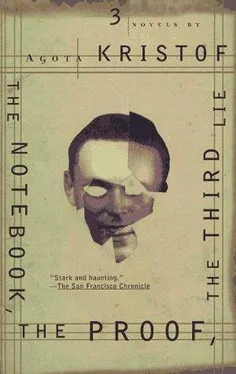




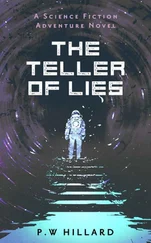
![Джеффри Дивер - Where the Evidence Lies [A Lincoln Rhyme Short Story]](/books/403782/dzheffri-diver-where-the-evidence-lies-a-lincoln-r-thumb.webp)
